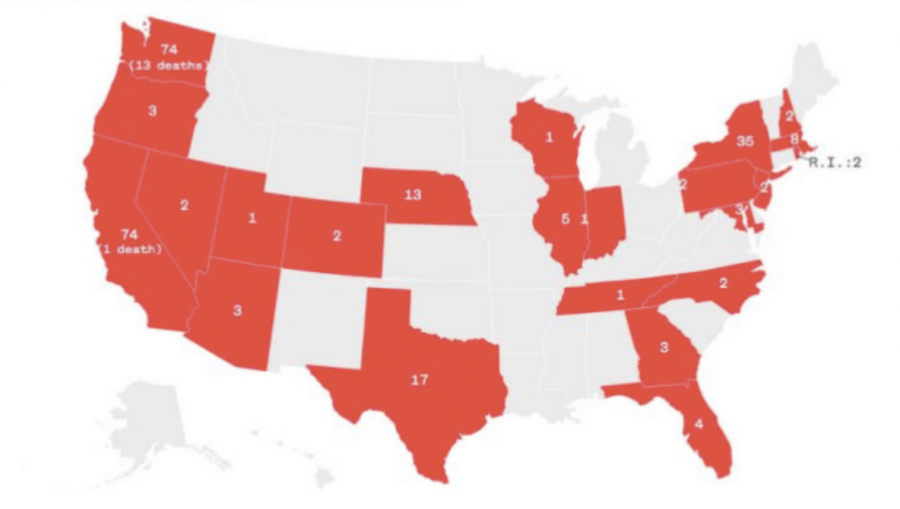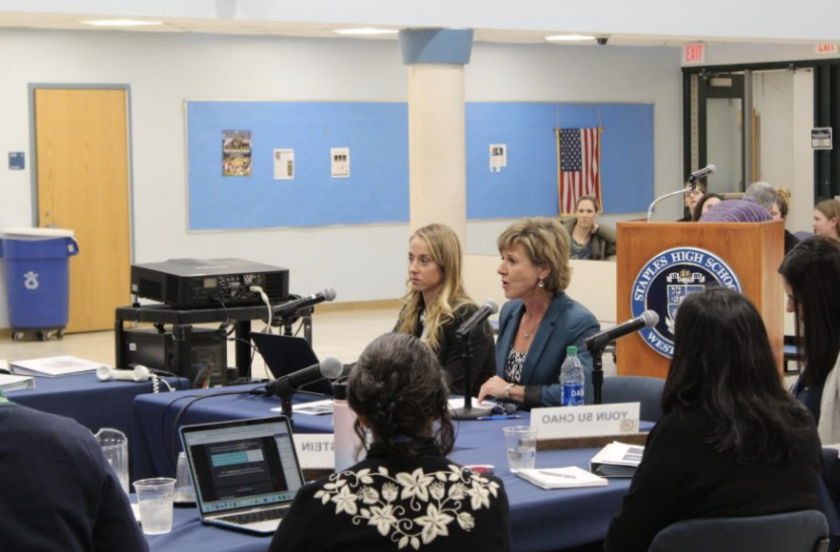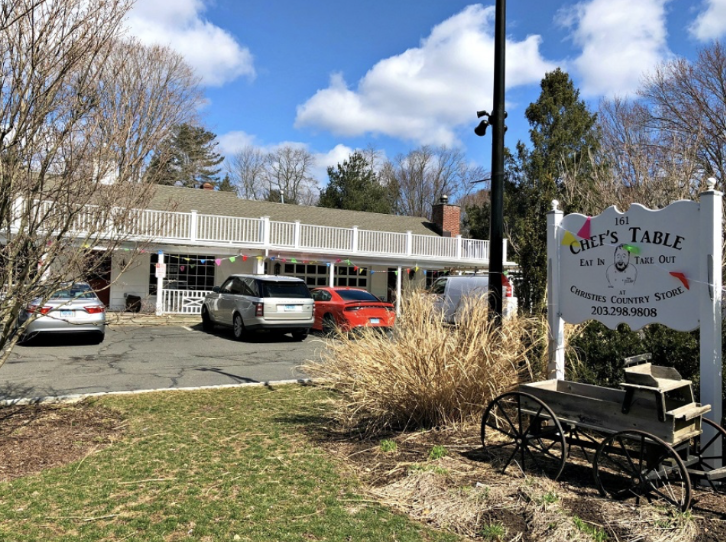Just over a year ago, Facebook access was still a fantasy in the halls of Staples High School. An attempted log-on to the social site, and computer screens were blasted with error messages and warnings of a policy violation. Well, policy has changed.
Staples lifted the Facebook firewall before the last school year, and so allowed students to bring their virtual lives from home to a reality at school. This shift in viewpoint moved Staples closer to its vision for a “21st century education,” and the changes, as of now, are showing no signs of slowing. In the year since, the program has gone through an overhaul—after the better part of two decades, Roundcube is no longer considered the sole communication gateway.
The technological revolution has finally come to Staples.
On July 1, Westport schools began using Google Apps for Education, marking an end to proprietary software and an initiative to use the Cloud almost exclusively according to Principal John Dodig, referring to the use of web apps such as Google Drive, Google Calendar, Gmail, and data storage on the Internet.
Though it has been both criticized and praised by students and teachers, the administration ultimately chose Google Apps because it offered the most flexibility at a good price, said Natalie Carrignan, the Director of Technology for Westport Schools.
Dodig called this move toward the Cloud “the overarching reason” why the change was made, with the ultimate goal being the implementation of a bring your own device (BYOD) policy. This is slated to begin next school year, according to Westport Schools’ Five-Year Strategic Technology Plan.
“The district will no longer have to buy laptops because most kids bring their own laptops or tablets to school,” Dodig said.
However, with a few exceptions, this plan will not work if the school continues to use proprietary software due to the potential incompatibility of software between different computers.
Another reason for the move was cost. Dodig called Microsoft Office prohibitively expensive, while while Carrignan confirmed that moving to the new version of Microsoft Office would have cost the school district $150,000—money that’s currently not in the budget.
“Many school districts throughout the nation are using Google Apps,” Dodig said.
And Google supports Dodig’s claim. According to the company, Google Apps is being used by 16 million teachers and students, including colleges like Brown University and the University of Notre Dame. But at Staples, its popularity is mixed.
“I haven’t actually used it yet,” Matt Willis ’14 said.
Others have a more positive outlook, like Michael Adler ’13. “Overall, switching to Google Apps will provide a better educational experience for both students and staff,” he said.
Gabe Pensak ’15 offers some criticism, saying that Google Drive is not always clear.
“Sometimes a document for homework looks like classwork,” Pensak said. “This could definitely pose a problem.”
However, despite student reviews, many teachers, whom the school mandated to take a two-hour training session during the first three professional development days, are happy with Google Apps. Among teachers, one avid user of Google Apps is new social studies teacher Sara Pinchback.
“I really enjoy using Google Apps with each of my classes,” Pinchback said. “There were lots of groans in the beginning of the year, but groans are decreasing, and I have even heard some ‘I really like Google Apps.’”
David Scrofani, a physics teacher, is also a fan of the move to Google Apps, particularly Gmail. According to him, teachers and students now have an “effective” way of communicating outside of school. In contrast, Scrofani believes that Roundcube—last year’s email system—was, in essence, useless.
“If I sent a student an email through Roundcube, they might see it five days later,” Scrofani said. “Maybe.”
A complaint, on the other hand, was with the official rollout of Google Apps, which Michael Abrams ’14 called disorganized.
“I don’t remember much notification about it until my parents received the email [with the Acceptable Use Agreement] that we had to sign,” Abrams said.
Dodig admits to Abrams’ claim. “Some people did not like the fact that we were getting rid of something that we had been using since probably its inception,” he said.
But Dodig believes that the change was inevitable.
“The entire industry is moving that way,” he said. “The writing is on the wall.”






















































